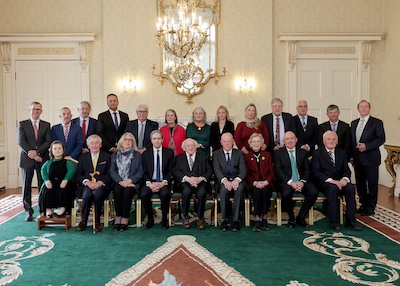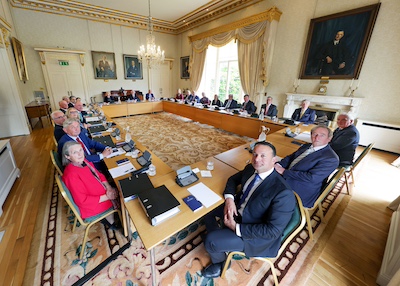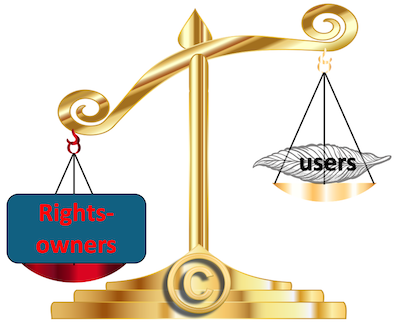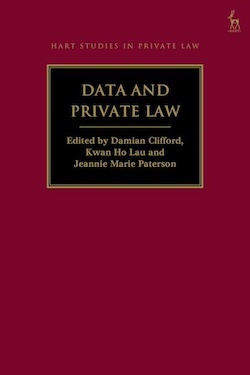Political speech and civil servants – Part 1 – Blanket bans and ministerial circulars
 In my previous two posts, I considered the drafting history and possible unconstitutionality of section 11 of the Defence (Amendment) Act 2024 (the 2024 Act; update: available here) (pdfs here and here). That section adds a new subsection (1A) to section 103 of the Defence Act, 1954 (the 1954 Act; consolidated here) placing comprehensive restrictions on the political speech of members of the Defence Forces. A similar blanket ban is imposed upon members of the civil service. In this post, I want to examine whether there is a sufficient legal basis for the ban. In my next post, I will consider whether that ban is constitutional.
In my previous two posts, I considered the drafting history and possible unconstitutionality of section 11 of the Defence (Amendment) Act 2024 (the 2024 Act; update: available here) (pdfs here and here). That section adds a new subsection (1A) to section 103 of the Defence Act, 1954 (the 1954 Act; consolidated here) placing comprehensive restrictions on the political speech of members of the Defence Forces. A similar blanket ban is imposed upon members of the civil service. In this post, I want to examine whether there is a sufficient legal basis for the ban. In my next post, I will consider whether that ban is constitutional.
The Civil Service Code of Standards and Behaviour (2004; revised 2008 (pdf); Circular 26/04 (09 September 2004) (pdf)) provides:
…5. Civil Servants and Politics
5.1 Restrictions have traditionally been imposed on civil servants engaging in political activity to ensure public confidence in the political impartiality of the Civil Service. This section restates the existing restrictions.5.2 … (d) All civil servants above clerical level are totally debarred from engaging in any form of political activity.
5.3 Civil servants in category (d) may not engage in public debate (e.g.





